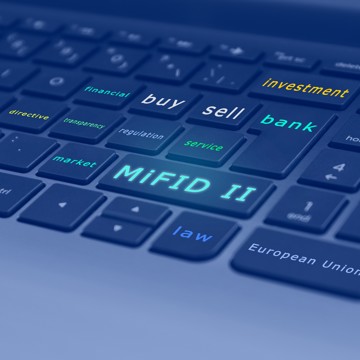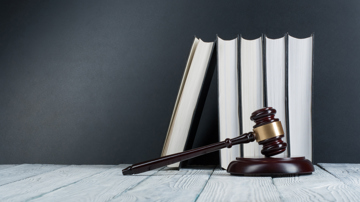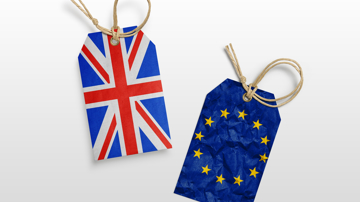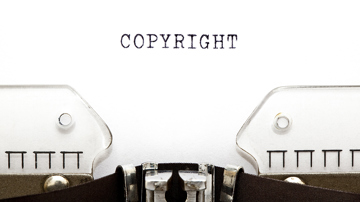country
all
legal areas and industries
all
year
all


blog
The principle of replacement
Are you aware that some of your national trademark registrations might already have been replaced by designations of International Registrations? You may be wondering how this could have happened and whether you need to worry? Here is a brief explanation of the principle of replacement.

blog
Legal game plan: What the Austrian government programme 2025–2029 means for sports law
The 2025–2029 government programme of the three-party coalition includes several proposals relevant to sports law. In this blog article, we highlight key points from the sports sector and offer legal commentary from a practical perspective.

blog
Poland: New copyright law provisions: a step towards simplifying contracts in the digital world
Under the presidency of Donald Trump, the term "deregulation" has been increasingly used in public discourse. One of his main campaign promises was to terminate unlawful regulations and those undermining the national interests of the United States. These in-cluded regulations undermining technological innovation, infrastructure development, re-search, scientific progress and economic growth, as well as those imposing unnecessary burdens on small businesses and hindering entrepreneurial activity. Immediately following Mr Trump's inauguration, the deregulatory machinery was set in motion.


blog
Sport & Trademarks – Trademark protection for athletes and stars: which trademarks can be protected and how can they be monetised?
In today's sports and media landscape, top athletes are not just competitors – they are global brands. Names, logos, gestures and even signatures can be legally protected and commercially exploited. For many stars, brand value has become just as important – if not more important economically – than athletic performance. But how does trademark protection apply to public figures, and what opportunities are there for monetisation?


blog
The new EU design legislation: key updates and changes
The European Union has recently enacted a significant overhaul of its design protection legal framework, aimed at modernising and aligning it with the digital age by addressing new challenges posed by technological advances and market globalisation. The new EU Design Legislative Reform Package, published in the Official Journal on 18 November 2024, introduces substantial changes that will impact design holders and practitioners across the EU.


blog
Sports & Trademarks: The opportunities and legal aspects of a symbiotic relationship
The FIS Alpine Ski World Championships in Saalbach 2025 have just concluded, and the FIS Nordic Ski World Championships in Trondheim are just around the corner. This is the perfect moment to take a closer look at the connection between sports and brands in the sports business. Clubs and federations use their brands to generate vital revenue, athletes register personal brands that set them apart from the competition, and companies leverage sporting events, teams and athletes to activate and spread their brand messages. With continuous innovation and growth in the sports business, the legal safeguarding of such collaborations is becoming increasingly complex. How does a brand become a protected trademark?

blog
EU funding for SMEs when registering their industrial property rights
Small and medium-sized enterprises (SMEs) across the European Union that apply to register their industrial property rights this year can recover up to 75 % of the official registration fees, up to the maximum amount granted. Industrial property rights include trademarks, industrial designs, patents and new plant varieties.

blog
Captive insurance and its prospects in Hungary
Captive insurers have been booming in recent years, driven by hard market conditions, the emergence of new risks that the traditional insurance industry has been unwilling to cover, and increasing global volatility. Captive insurance undertakings, often referred to simply as "captives", have seen a significant uptick in formations globally. Statistics reveal a steady increase in the number of captives over the past four years, rising from 5,879 in 2020 to 6,181 by the end of 2023, according to the Captive Managers and Domiciles Rankings + Directory 2024 published by Business Insurance.[1]





blog
Bulgarian patent litigation: the non-exclusive licensee claimant
Marketing a product that incorporates a patented invention across multiple jurisdictions gives rise to a variety of practical obstacles and considerations.

blog
How is the image of a natural person protected in Poland – and why should businesses know?

blog
Shush, don't tell! Secret design applications in Austria and the EU
Both Austrian national designs as well as Registered Community Designs with EU-wide protection can initially be filed without disclosure (i.e. secret applications). This means that their publication will be deferred. Secret design applications generally make sense if the applicant is interested in keeping a design undisclosed for as long as possible. The precise national and EU-wide regulations are not completely uniform.

blog
Tips & tricks to ensure legal validity of a design registration
What do the terms "novelty" and "individual character" mean and why are they so important?
As mentioned in our blog post of 23 April 2024 (link), several criteria must be met to ensure the legal validity of a design registration.

blog
What do you need for a design application in Austria?
Designating designs
As we already noted in our blog article of 19 March 2024 (link), intellectual property covers more than "just" trademarks. A design is particularly recommendable if the external appearance of a product or part of it is to be protected.

blog
Of trademarks, designs and other IP rights
When developing or refining a product, including its branding, a lot of time and money are invested in creating something unique that customers will need and love. To protect this financial and creative investment, legislators have decided to grant certain monopoly rights or intellectual property (IP) rights. So, how do you determine the appropriate type of protection for your product? In our blog (link) we have mainly discussed trademark protection. But trademark law is broader than you might expect. Besides the "name" of a product, other features such as the shape, the colouring or a sound can be protected as long as they are recognised as an indication of origin and no absolute ground for refusal, like the technical functionality of the feature, applies. Still, trademark law "merely" protects indications of origin. Fortunately, there are also other IP rights that should be considered as part of a protection strategy.

blog
The perks of International Registration
If you want to protect your trademark, there are a few things to consider:
- How exactly will the trademark be used?
- For which goods and/or services?
- And – today's topic – where?


blog
Proper trademark use and trademark marking
Registering and monitoring your trademark are important tools to protect your trademark. It is also important to make sure to properly use the trademark and to indicate to the public that a word, logo or other sign functions as your trademark by marking it accordingly.

blog
Trademark searches: an essential step on the way to a new trademark
When developing a new brand, it is important to determine well before using the trademark and filing a trademark application whether there are any earlier conflicting trademark rights that could block use or registration. Trademark searches help to identify possibly conflicting earlier trademark rights and to better assess the risk associated with using and registering the brand.


blog
Priority principle in trademark law and intermediate rights
The priority principle in trademark law states that in the event of a conflict between two trademarks, the older right always prevails. As a rule, therefore, a trademark owner cannot defend themselves by claiming to be the owner of a later trademark.

blog
Why is a whistleblowing system useful for companies?
According to global statistics, about half of all cases of corporate abuse are reported, and half of these reports come from employees within the company. The survey also reveals that corporate abuse can harm the company's reputation and cost it up to 5 % of its annual turnover, meaning that companies have a strong financial interest in promptly exposing potential abuses. In this article, Alexandra Bognár and Noémi Suller discuss various forms of misconduct within companies, highlighting the importance of a well-functioning whistleblowing system. This system allows people to report misconduct, even anonymously.

blog
Recordals in the register – Keep records updated
Have you recently acquired another company or some assets like a trademark or even an entire trademark portfolio? Has your company merged with another company? Or has it changed its name or address? Then don't forget to enter the change in the corresponding Trademark Register.

blog
Problems with EUTMs? Conversion might be a solution!
Unlike national applications, which are protected only in a single country, the EU trademark offers protection in all member states of the European Union. Even if an obstacle to protection exists in only one member state of the EU or if owners of prior rights in a single country feel disturbed by the application, protection for the entire EU trademark is at risk due to the unitary effect. Thus, applicants for trademarks in the European Union often face a problem when the Office refuses to grant protection to a trademark based on absolute or relative grounds or when third parties file an opposition or cancellation request against the trademark.

blog
The EU Digital Services Act: 19 designated online platforms have completed their last-minute compliance preparations, Serbia is just looking over its shoulder
While most provisions of the EU Digital Services Act ("DSA") will not begin to apply until February 2024, the EU Commission has nevertheless designated 19 "very large online platforms" and "very large search engines" – so-called gatekeepers – for which the strictest rules under the DSA took effect on 25 August this year.

blog
How to: Notarisation and legalisation of IP documents
While the legalisation requirements in connection with the assignment of trademark registrations were abolished in Austria a few years ago, everybody dealing with registered IP rights around the world knows that there are notarisation and legalisation requirements for documents like powers of attorney, affidavits or deeds of assignment.

blog
Why is it important to document the use of my trademark?
Are you the proud owner of a trademark registration? – Please keep in mind that registration alone might not always suffice to ensure protection. In most jurisdictions, after a certain period of time you must prove that you are using your trademark for the protected goods/services – either actively or at least in case of a third-party contention. Otherwise, you risk the partial or total deletion of your trademark registration from the trademark register.

blog
You know it when you see it – Shapes as trademarks
Shapes can function as a clue to identify the source and differentiate between products of different companies. While browsing a store shelf, consumers often identify a product by its shape before even noticing its label. Shape marks offer a beneficial avenue to safeguard product designs, packaging, and containers in both Austria and the entire European Union.

blog
A relief for companies: the new "EU US Data Privacy Framework" is in force!
The CJEU's annulment of the "Privacy Shield" created significant legal uncertainty around the use of US clouds and personal data transfers to the US. Fortunately, summer 2023 brings good news: this legal uncertainty has gone. On 10 July 2023, the European Commission has adopted an adequacy decision on the "EU US Data Privacy Framework" (DPF).

blog
Pattern Marks – Relatively New Kids on the Block
Pattern trademark applications have only recently become feasible in Austria and at the EU level within the past few years and this particular form of trademark protects recurring elements of a pattern, irrespective of specific boundaries.

blog
Much harder than it looks! Drafting lists of goods and services
Trademark registrations protect trademarks for certain products. These are to be itemised in the "list of goods and services" or the "specification". As the specification defines the scope of protection for the trademark, it is – alongside the sign for which protection is sought – the most important part of the application.

blog
Trademark application in the fast lane: Austria's fast-track application
In our last blog, Michelle Duchon and Christian Schumacher reported on mandatory information for a national Austrian trademark application.
But how quickly can you get a trademark registered? With the fast-track application, it is possible to register a trademark within 10 working days.

blog
Just fill out a form? – Be diligent when filling out the trademark application
To file a national trademark application with the Austrian IP Office, mandatory information must be entered in an online form. While this sounds simple, several aspects should be considered to avoid problems.

blog
Data protection stopping machine overlords?
The Italian Data Protection Authority "Garante per la Protezione dei Dati Personali" recently banned the use of ChatGPT in Italy due to allegations of unlawful collection of personal data and the lack of an age verification system for children
ChatGPT is a well-known artificial intelligence chatbot developed by OpenAI. It is a simulated chatbot that was primarily created to fulfil customer service tasks. However, people tend to use it to perform many other tasks, such as writing essays, programming or predicting business developments. ChatGPT uses not only data from sources such as websites, articles or textbooks to improve its interaction with its users and to fulfil the set tasks, but also collects and processes data from the users and from the information they provide.

blog
Do I have to register my brand or can I use it without registration?
You are well advised to, but in principle there is no legal requirement to register your trademark in the European Union. There are several good reasons to file a trademark application.

blog
GPT-4 shows the ever-increasing importance of legal considerations pertaining to AI
Generative AI has made quantum leaps in the last year. Aside from multiple text2 image models there are large language models producing largely accurate and convincing texts in reply to prompts provided by a user. In November last year OpenAI made available the functionality of their vast 175 billion parameter model GPT-3.5, which was fine-tuned to interpret prompts formulated as questions. ChatGPT is a turning point in the public perception of AI, as it provided compelling texts with comparatively high factual accuracy.

blog
North Macedonia: The Data Protection Act and enforcement challenges
After the adoption of the General Data Protection Regulation of the European Union (EU) 2016/679 ("GDPR"), as an obligation based on the Stabilisation and Association Agreement between EU and North Macedonia, a new data protection regime was adopted. Since 2020, the matter of personal data protection in the Republic of North Macedonia is regulated by the new Act on Personal Data Protection (Official Gazette of the Republic of North Macedonia, nos. 42/20, 294/21) ("LPDP"), effective as of 24 February 2020.

blog
Serbia incentivises start-up-ecosystem
To attract investors in the area of innovation technologies, Serbia has adopted a set of subsidies relating to employees' salaries and corporate income taxes. In recent years, the country has set its sights on being one of the largest European hubs for EU and overseas IT companies using talented IT workforce only as an outsourcing service supplier while retaining actual project development in the countries of capital origin. This is seen as an opportunity to motivate foreign IT companies doing business in Serbia not only to shift their operations to Serbia on a larger scale, but to tie IP rights on their tech products to their affiliated Serbian companies.

blog
The Omnibus Directive: key objectives and national implementation
The Omnibus Directive (Directive (EU) 2019/2161), also referred to as the "Enforcement and Modernisation Directive", is aimed at strengthening consumer protection and enhancing enforcement measures as the world gears up for the digital age. Recognising the increased use of online platforms and marketplaces, it encourages Member States to adopt specific measures to maintain a high level of consumer protection, including in these channels.

blog
Key legal topics in data centre development and investments
The recent years' sprint towards digitalisation was one of the decisive factors in accelerating the transformation of telecommunications infrastructure. The global markets expect an increase in investments in telecom infrastructure and Romania is no exception.


blog
Trademarks: The classification of "virtual goods" in trademark applications
Trademark professionals have noted growing interest in protecting trademarks for "virtual goods". This leaves trademark specialists as well as IP offices grappling with how to correctly classify these goods.

blog
EU: Advertorials may increasingly become the target of unfair competition claims
In a preliminary ruling following a request by the German Federal Court of Justice (case C-371/20), the Court of Justice of the European Union (CJEU) interpreted Point 11 of Annex I to the Unfair Commercial Practices Directive (Directive 2005/29/EC; UCP-Directive).



blog
Trademarks: How conceptual differences can save your trademark applications
You want to apply for a trademark that is visually or phonetically similar to another trademark, perhaps it even is contained as a whole. Is this possible without infringing on someone else's trademark rights?


blog
Trademarks: The aftermath of BREXIT – Are your trademarks and designs protected in the UK?
The transitional period for the withdrawal of the United Kingdom ("UK") from the EU ("BREXIT") ended on 31 December 2020. All European Union trademarks and Community designs registered at that time were automatically cloned as national IP rights in the UK.






blog
OGH - Aufgriffsrechte in der Insolvenz sind zulässig
Hintergrund: In der Praxis vereinbaren Gesellschafter einer Gesellschaft mit beschränkter Haftung (GmbH) im Gesellschaftsvertrag häufig sog. Aufgriffsrechte, das sind im Wesentlichen wechselseitige Erwerbsrechte, die bei Eintritt von definierten Ereignissen (sog. "Aufgriffsfälle") zum Erwerb des Geschäftsanteils des vom relevanten Ereignis betroffenen Gesellschafters berechtigen. Ein Aufgriffsfall ist zB der Tod eines Gesellschafters, der eine natürliche Person ist.

blog
Disclosure obligations and liability of UUC platforms in focus
It was in the very first Technology newsletter in fall 2019 that I reported about referrals to the CJEU concerning disclosure obligations and liability of user uploaded content (UUC) platform providers in relation to illegal (copyright infringing) uploads.

blog
WIPO PROOF: Launch of new online service to create trusted tamper-proof evidence through timestamps
Companies spend a lot of time and money creating, innovating and protecting their intellectual property. When the protection fails due to unavailable or insufficient evidence, the frustration is understandably high.

blog
Czech Republic: Crowdfunding can help businesses overcome COVID-19
The COVID-19 pandemic has affected almost all businesses worldwide and could end in collapse for many of them. One way businesses (especially SMEs) can get through this period and stand on their own two feet again is crowdfunding.

blog
One step towards virtual dispute resolution: hearings via videoconference
Court hearings via videoconference were unimaginable in Austrian courts pre-COVID-19. Witnesses could testify via videoconference in Austrian court proceedings only under certain circumstances, but they still had to attend court – just not the court in which the proceedings were pending.

blog
Das COVID-19-GesG – aktuelles zu Virtuellen Versammlungen im Gesellschaftsrecht und zu elektronischen Notariatsakten
Update 10/04/2020
Der Nationalrat hat unter anderem im Zuge der COVID-19-Gesetzgebung mehrere gesellschaftsrechtliche Maßnahmen im Rahmen eines sog. gesellschaftsrechtlichen COVID-19-Gesetzes (COVID-19-GesG) beschlossen.

blog
We help Start-Ups!
In an attempt to help start-ups during the current corona situation obtaining the much needed financial liquidity support from their shareholders or other investors, we put together a short and simple forward equity agreement, the "Simple Equity Investment Contract (SEIC)".

blog
Court hearing via social network – has Europe missed its chance?
Digitalisation is on everyone's lips. Parts of the judiciary – at least in some European countries – are hesitant. Austria introduced an electronic legal communication system for most Austrian courts decades ago.

blog
Telemedicine on the rise in Austria?
Seven out of the 328 pages of the new green/conservative government's programme are dedicated to the health sector. One bullet point on this programme for the next five years is to implement telemedicine treatment in the best possible way. The government further explains that it aims to promote digitalisation in diagnosis, treatment and medical research and thus strengthen Austria as a health hub.


blog
European Commission's Expert Group publishes report on Regulatory Obstacles to Financial Innovation
Just in time for Christmas, the European Commission's Expert Group published its eagerly awaited final report on regulatory obstacles to financial innovation on 13 December 2019 (the "Report").

blog
Update on Artificial Intelligence and Competition Law
On 6 November 2019, the German Cartel Office and the French Competition Authority published a joint report on the competition risks resulting from the use of algorithms (the "Report"). The Report tackles four main issues:
blog
Facebook's Libra: The new generation of cryptocurrencies?
"When I think about all the different ways that people interact privately, I think payments is one of the areas where we have an opportunity to make it a lot easier," Zuckerberg said on 30 April 2019 at Facebook's F8 annual software developer conference in San Jose, California.

blog
Increased activity of the Polish Data Protection Authority
As of November 2019, the Polish Data Protection Authority (Urząd Ochrony Danych Osobowych; "UODO") has fined three Polish companies and one local government institution for non-compliance with the GDPR.

blog
Digital foundation of an Austrian limited liability company
The Electronic Notarial Form Foundation Act (Elektronische Notariatsform-Gründungsgesetz) ("ENG") came into force on 1 January 2019 and enables going forward the digital foundation of an Austrian limited liability company ("GmbH") by way of an electronic notarial deed. The Austrian notaries were entrusted with the implementation of the digital foundation procedure. Since autumn 2019, the first notaries in Austria have been offering the digital foundation process of a GmbH. Schoenherr attorneys at law, was the first person in Austria to accompany a digital foundation process.
Before we describe the digital foundation in practice, we briefly describe the notarial process of founding a GmbH in general: (i) execution of the deed of incorporation / articles of association as Austrian notarial deed (Notariatsakt), which essentially requires that the notary reads out the agreement and the parties sign the agreement in front of the notary, (ii) appointment of the first managing director(s) by way of a shareholders' resolution (by way of a notarial protocol, circular resolution with certified signatures or – as this is done in practice – as part of the notarial deed described under (i)), (iii) execution of the specimen signatures of the managing director(s) with their signatures being certified by a notary public (this could also be done by a foreign notary or an Austrian embassy/consulate) and (iv) execution of the commercial register filing again with signatures being certified by a notary public or Austrian embassy/consulate.
The ENG now attempts to fully digitalize such process. The process in practice can be described as follows:

blog
FinTech 2019 in Austria
Financial technologies, or FinTechs, are rapidly changing the finance/banking sectors, and sometimes even shift whole markets online, and make it possible to deal, invest or lend money without ever needing to deal with a traditional bank.

blog
Serbia catches up with the GDPR
1. New Data Protection Law adopted and applicable
After a public hearing that lasted more than a year, the National Assembly of the Republic of Serbia adopted the new Data Protection Law (the "Law") on 9 November 2018. The Law is applicable as of 21 August 2019. The provisions of the Law itself have been modelled on, and largely comply with the provisions of the GDPR, as part of the wider process of harmonising the national law of Serbia with EU law, which was one of the main reasons for the adoption of the new Law. Besides many novelties, the new Law elaborates on certain procedures, rights, obligations and competences.
Some of the most important novelties follow.

blog
EU-Finanz-Anpassungsgesetz 2019 │ New Challenges ahead for the virtual currency business
On 11 July 2019 the Austrian parliament adopted the EU-Finanz-Anpassungsgesetz 2019 ("EU-FinAnpG 2019") which implements the 5th EU Anti-Money Laundering Directive ("5th AML Directive") into Austrian law and introduces a number of amendments to Austrian laws relevant to the financial market.
In order to implement the 5th AML Directive, amendments to the Austrian Financial Markets–Money Laundering Act ("FM-GwG"), the Beneficial Owner Register Act (WiEReG) and the Act on Gaming (Glückspielgesetz), are necessary. These amendments include changes which will have a significant impact on business with virtual currencies.
blog
Schrems II.: the doom of Privacy Shield and Standard Contractual Clauses?
Read the Czech version below.
There are two fundamental legal mechanisms stipulated in the EU law for the transfer of personal data outside European Economic Area (EEA): Standard Contractual Clauses (SCCs) and Privacy Shield. Both of them are widely used in practice because they allow corporations within the EEA to legitimise the transfer of personal data beyond the borders of EEA. However, each of them behaves differently. SCCs are essentially contracts between (at least) two parties and a Privacy Shield on the other hand is an agreement between the United States Department of Commerce and the European Union, which regulates the transatlantic data transfers.
The Court of Justice of the European Union (CJEU) is prepared to hear a case challenging the validity of both of the above-mentioned transfer instruments. The case stems from a dispute between Max Schrems and Facebook dating back to 2013. Max Schrems is an Austrian lawyer and determined advocate for data protection. His focuses on the flow of (EU) personal data from US corporations to U.S. intelligence agencies. In 2017, Schrems set up a non-profit organisation NYOB1 with the aim to help citizens defend themselves against allegedly “omnipresent” technological corporations.


blog
A glimpse into the future of AI regulation
Challenges and opportunities for organisations developing, deploying and using AI
On 8 April 2019, the High-Level Expert Group on Artificial Intelligence – a supportive body to the European Commission – launched their "Ethics Guidelines for Trustworthy AI". Based on four questions, the following text deals with the context and content of this guideline, deducing the possible next steps for AI practitioners towards the achievement of Trustworthy AI.

blog
Austrian public enterprises join forces to accelerate 5G expansion
On 26 March 2019, the Austrian mobile operator T-Mobile commissioned the first 25 5G mobile stations in 17 selected Austrian municipalities, predominantly in rural areas. According to the Chancellor of Austria, the start of 5G marks a milestone in the country's economic competitiveness and technological progress.
However, further steps need to be taken to achieve almost nationwide availability of 5G by the end of 2023 as laid down in the Federal Government's 5G strategy paper.

blog
Austrian DPA case law since 25 May 2018 (excerpt)
Introductory remarks:
- So far, the Austrian Data Protection Authority ("DPA") did not impose significant fines under the GDPR
- The majority of its decisions had been remediation orders
- This excerpt of the DPA's decisions under the GDPR forms a summary per March 2019 of its in our view most relevant decisions
- Despite some of those decisions had been contested and appellate proceedings are still pending this excerpt shall give an impression of the DPA's views and considerations under the GDPR

blog
Austria paves the legal way for (partly) autonomous vehicles
Imagine your car would drive you instead of you driving your car. This marvel has become partly a reality, as a law entered into force on 11 March 2019 allowing autonomous driving on Austrian highways. In addition, an amendment to the regulation for autonomous driving (Automatisiertes Fahren Verordnung – AutomatFahrV) by the Ministry of Traffic, Innovation and Technology broadly permits autonomous parking of vehicles.

blog
Combining Blockchain and AI to make Smart Contracts Smarter
Blockchain and Artificial Intelligence (AI) are the new giants in technology and two of the hottest topics at the moment. The two technologies are typically considered for separate applications but there is a link: data.
AI allows processing of big data, whereas Blockchain offers security, immutability and decentralised data storage. It makes sense to combine the two technologies to make "Smart Contracts smarter" and to potentially also be a driver of the fourth industrial revolution: Data owners might be able to control their data again by choosing which AI provider to share their data with. Data marketplaces might also be possible, boosting AI applications when combined with Blockchain technology.

blog
What is Blockchain?
Blockchain1 or Distributed Ledger Technology has become a trending topic especially in the light of cryptocurrencies, smart contracts, ICOs and other areas in the context of digitisation, which are based on this technology. This technology and the (alleged) possibility to digitalise any kind of assets or create bullet-proof sets of data has the potential to revolutionise certain industries. It is therefore essential to understand blockchain technology in order not to fall behind. The following is a brief introduction to the technology, its variants, advantages and possible applications.



